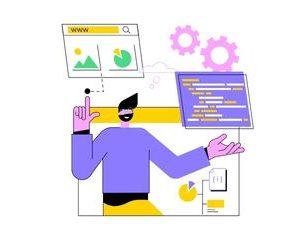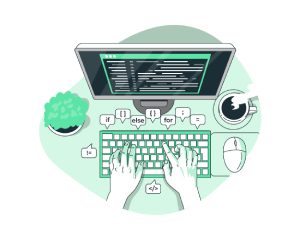Description
Overview:
Welcome to the “Deep Learning Projects – Convolutional Neural Network” course! This program is designed to provide participants with hands-on experience in building convolutional neural networks (CNNs) for solving real-world problems in image recognition, object detection, and classification. CNNs have become a cornerstone in deep learning, particularly for tasks involving image data. Through this course, participants will learn how to design, train, and deploy CNN models for various applications using popular deep learning frameworks.
Interactive video lectures by industry experts
Instant e-certificate and hard copy dispatch by next working day
Fully online, interactive course with Professional voice-over
Developed by qualified first aid professionals
Self paced learning and laptop, tablet, smartphone friendly
24/7 Learning Assistance
Discounts on bulk purchases
Main Course Features:
Comprehensive introduction to convolutional neural networks (CNNs) and their applications
Step-by-step guidance on building CNN architectures for image classification, object detection, and segmentation tasks
Hands-on coding tutorials and projects using Python and deep learning libraries such as TensorFlow and PyTorch
Exploration of advanced CNN techniques, including transfer learning, data augmentation, and model fine-tuning
Practical examples and case studies demonstrating CNNs in action across different domains, such as healthcare, autonomous driving, and surveillance
Access to a repository of curated datasets and pre-trained CNN models for experimentation and project development
Expert insights and best practices for optimizing CNN performance, handling overfitting, and interpreting model outputs
Opportunities for collaboration and peer-to-peer learning through online forums, group projects, and code reviews
Who Should Take This Course:
Data scientists, machine learning engineers, and software developers interested in expanding their skills in deep learning and CNNs
Computer vision researchers seeking practical experience in building and deploying CNN models for image analysis tasks
Students and academics studying artificial intelligence, computer vision, or related fields who want to gain hands-on experience with CNNs
Professionals working in industries such as healthcare, automotive, and robotics, where CNNs are used for image recognition and analysis
Anyone with a basic understanding of deep learning concepts and Python programming looking to specialize in CNNs and image processing
Learning Outcomes:
Develop a strong understanding of convolutional neural network architectures and their components
Acquire practical skills in building and training CNN models using TensorFlow and PyTorch
Gain proficiency in preprocessing image data, designing CNN architectures, and fine-tuning model parameters
Learn how to evaluate and interpret CNN performance metrics, such as accuracy, precision, and recall
Apply CNNs to real-world projects, including image classification, object detection, and semantic segmentation
Explore advanced CNN techniques for improving model generalization and robustness to variations in input data
Build a portfolio of CNN projects showcasing different applications and domains
Demonstrate competency in implementing CNN solutions for image analysis tasks through hands-on projects and assessments.
Certification
Once you’ve successfully completed your course, you will immediately be sent a digital certificate. Also, you can have your printed certificate delivered by post (shipping cost £3.99). All of our courses are fully accredited, providing you with up-to-date skills and knowledge and helping you to become more competent and effective in your chosen field. Our certifications have no expiry dates, although we do recommend that you renew them every 12 months.
Assessment
At the end of the Course, there will be an online assessment, which you will need to pass to complete the course. Answers are marked instantly and automatically, allowing you to know straight away whether you have passed. If you haven’t, there’s no limit on the number of times you can take the final exam. All this is included in the one-time fee you paid for the course itself.
Curriculum
Section 01: Introduction
Section 02: Installations
Section 03: Getting Started
Section 04: Accuracy













